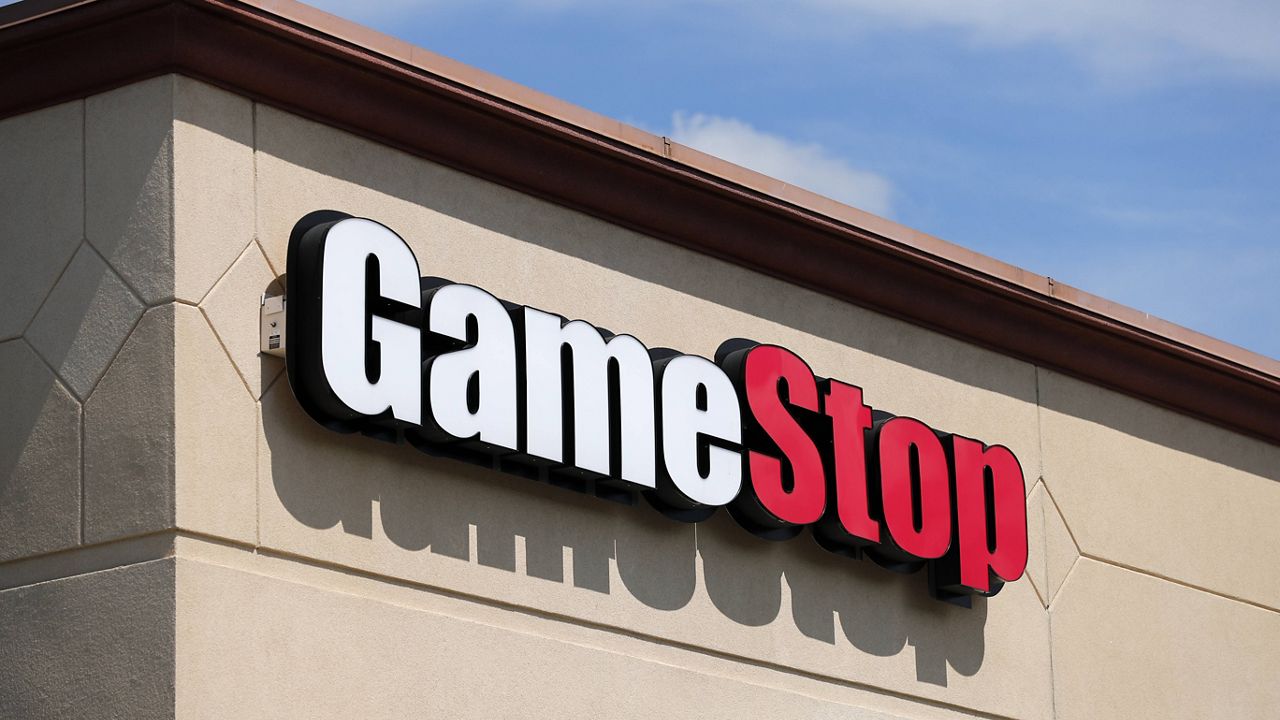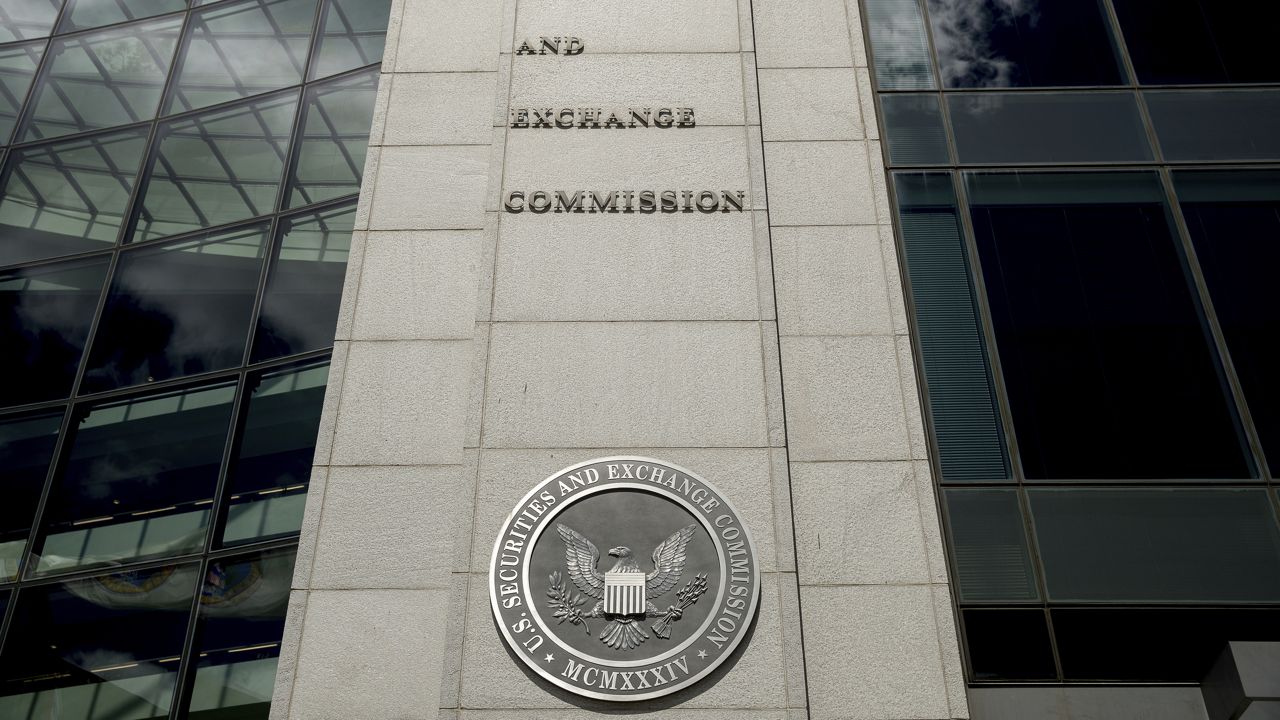Popular stock trading platform Robinhood abruptly restricted transactions on a number of stocks making surges, including GameStop, sparking widespread public outcry amid volatility in the stock market.
Shares of GameStop fell sharply on Thursday, dropping as much as 50% after record, unprecedented surges. The stock yo-yoed between $112 and $483 before closing down at $197.44, down 43.2%.
GameStop stock has rocketed from below $20 earlier this month to close around $350 Wednesday as a volunteer army of investors on social media challenged big institutions who had placed market bets that the stock would fall.
Robinhood limited trading in a number of stocks, including AMC Entertainment, Bed Bath & Beyond, Blackberry, Nokia, Express Inc., Koss Corp., American Airlines, Tootsie Roll, and Trivago.
"We continuously monitor the markets and make changes where necessary," the company wrote blog post Thursday. "In light of recent volatility, we are restricting transactions for certain securities to position closing only, including $AMC, $BB, $BBBY, $EXPR, $GME, $KOSS, $NAKD and $NOK. We also raised margin requirements for certain securities."
"Amid significant market volatility, it’s important as ever that we help customers stay informed," the company continued. "That’s why we’re committed to providing people with educational resources. We recently revamped and expanded Robinhood Learn to help people take advantage of the hundreds of financial resources we offer and educate themselves, including how to make sense of a volatile market. In 2020, more than 3.2 million people read our articles through Robinhood Learn."
Popular trading app WeBull has also halted the ability to buy GameStop, AMC, and Koss Corporation.
WeBull later lifted its restrictions on those stocks.
Charles Schwab, TD Ameritrade, and Interactive Brokers also limited options trading in certain funds.
The frenzy surrounding shares of GameStop, AMC and others has drawn in an influx of investors with little or no experience trading stocks. That poses a challenge for brokerages that cater to small investors, Andy Nybo, managing director at Burton-Taylor International Consulting, told the Associated Press.
“The brokers were forced to take action because they would be in the firing line if an unsophisticated investor loses money,” he told the AP.
Robinhood’s stated goal is to “democratize” investing and to bring more regular people into investing. The company has forced huge, ground-shaking changes for the brokerage industry, such as its decision to charge zero commissions for customers trading stocks and exchange-traded funds. That’s why some users took Thursday’s actions as an affront.
At least one lawsuit was filed Thursday in U.S. District Court in New York claiming Robinhood manipulated the market by restricting investors’ access to trading GameStop.
Robinhood investor Carlos Amaya told the AP that the app’s action Thursday was a disappointment to users like him who prided themselves on being a “different breed of investors.”
The 28-year-old school operations manager in Washington, D.C., said his parents immigrated from El Salvador and he was the first person in his family to buy stocks when he started using the app in 2017. He’s since made several thousand dollars.
“We pride ourselves in the name Robinhood because we’re trying to make more money and be the next people at the top,” he said. “You would expect Robinhood to let us do our thing instead of blocking us and saying it’s for our protection.”
Ziad Cohen, another Robinhood user, said he’ll ditch the trading portal once he sells his GameStop shares. He bought 85 shares last week, and says he is ahead by $20,000, even with the stock’s decline Thursday. The 19-year-old college student from Los Angeles plans to use that money to pay rent and his student loans.
“I feel pretty good about it,” Cohen said.
The move by Robinhood has caused widespread backlash online, with notable figures from rapper Ja Rule to Barstool Sports' Dave Portnoy encouraging investors to hold their positions in the various stocks.
Prominent lawmakers also announced that they will take action to investigate the incident.
Progressive Rep. Alexandria Ocasio-Cortez called for an investigation into Robinhood's move to restrict purchases.
"Inquiries into freezes should not be limited solely to Robinhood," she continued. "This is a serious matter. Committee investigators should examine any retail services freezing stock purchases in the course of potential investigations - especially those allowing sales, but freezing purchases."
Ocasio-Cortez's position drew a surprising ally – Sen. Ted Cruz (R-TX), who said in a retweet that he "totally" agrees with her sentiment.
Sen. Sherrod Brown (D-OH), who is set to become chairman of the Senate Banking Committee, announced that he will hold a hearing on the GameStop situation. Rep. Maxine Waters (D-CA) also announced a hearing in the House Financial Services Committee.
Democratic Rep. Ro Khanna, whose California district sits in Big Tech’s Silicon Valley, said the GameStop episode “has demonstrated the power of technology to democratize access to American financial institutions, ultimately giving far more people a say in our economic structures.”
In a statement Thursday, Khana called for “more regulation and equality in the markets,” and accused Wall Street of spending billions to “crush” GameStop and “put workers out of business” instead of investing in future technology.
Rep. Rashida Tlaib (D-MI) also called for an investigation into Robinhood's actions: "They're blocking the ability to trade to protect Wall St. hedge funds, stealing millions of dollars from their users to protect people who've used the stock market as a casino for decades."
The recent surge in GameStop has been the product of a tug-of-war between small investors and some big institutions. Citron Research and Melvin Capital had placed bets that GameStop shares would fall as the company tries to transform itself from a bricks and mortar retailer to a seller of online video games.
But smaller investors rallied to the stock. By sending GameStop shares soaring higher, they forced the big players to cover their bets by buying the stock, increasing the price even further. But there is some concern that small investors could face significant losses when and if stocks like GameStop plummet.
The Securities and Exchange Commission said Wednesday that it is monitoring the stock and options markets. Protecting investors is one of the jobs of the SEC, but it’s not clear what the agency can do in a case like GameStop, said Chester Spatt, a former chief economist at the SEC and a finance professor at Carnegie Mellon University.
Smaller investors are using Reddit and other discussion boards to encourage each other to buy GameStop, but that may not be much different than big investment houses giving their brokers marching orders each morning on which stocks to try to push that day, he said.
“There’s not necessarily the obvious coordination here that one thinks of in a case of manipulation,” Spatt said. “But regulators may view this as a mechanism for manipulation.”
Regardless, Spatt said regulators will likely feel pressure to look at it deeply. “At some point, things shooting up in these kinds of ways are going to come crashing down,” he said. “People are going to be crying out, ‘Where were you, and why didn’t you protect these investors?’”
Robinhood itself has been the target of regulators, settling charges late last year of not getting the best prices for investors trading on its app and that it didn’t fully disclose the risks involved in trading stocks and options.
The Associated Press contributed to this report.






